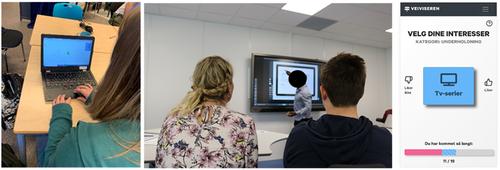Digital technology design activities—A means for promoting the digital inclusion of young adults with intellectual disabilities
Abstract
Background
Information and communication technology has become an important aspect of everyday life, including community living and social participation. However, people with intellectual disabilities face several societal inequalities, including digital exclusion. Even if people with intellectual disabilities still do not have the same access as others, this group is increasingly involved in digital technology design activities. Although digital technology design activities can lead to several user gains, little is known about how such activities affect digital inclusion. Therefore, we explore whether and how participation in digital technology design activities can support the digital inclusion of young adults with intellectual disabilities.
Methods
We interviewed seven young adults with intellectual disabilities about their participation in ten digital technology design sessions. We also collected reflective notes from eight support workers who participated in the same design activities. The interviews were analysed thematically.
Findings
Thematic analysis generated four themes describing how participation in technology design activities can support the digital inclusion of people with intellectual disabilities: improving digital skills and knowledge, displaying skills and competence, increased interest in technology use, and influencing and adapting technology.
Conclusions
Participation in digital technology design activities with support workers can provide new opportunities for young adults with intellectual disabilities and can help overcome several digital activity barriers. Designers and researchers should increasingly, and actively involve people with intellectual disability in digital technology design activities as it can support and promote digital inclusion.


 求助内容:
求助内容: 应助结果提醒方式:
应助结果提醒方式:


